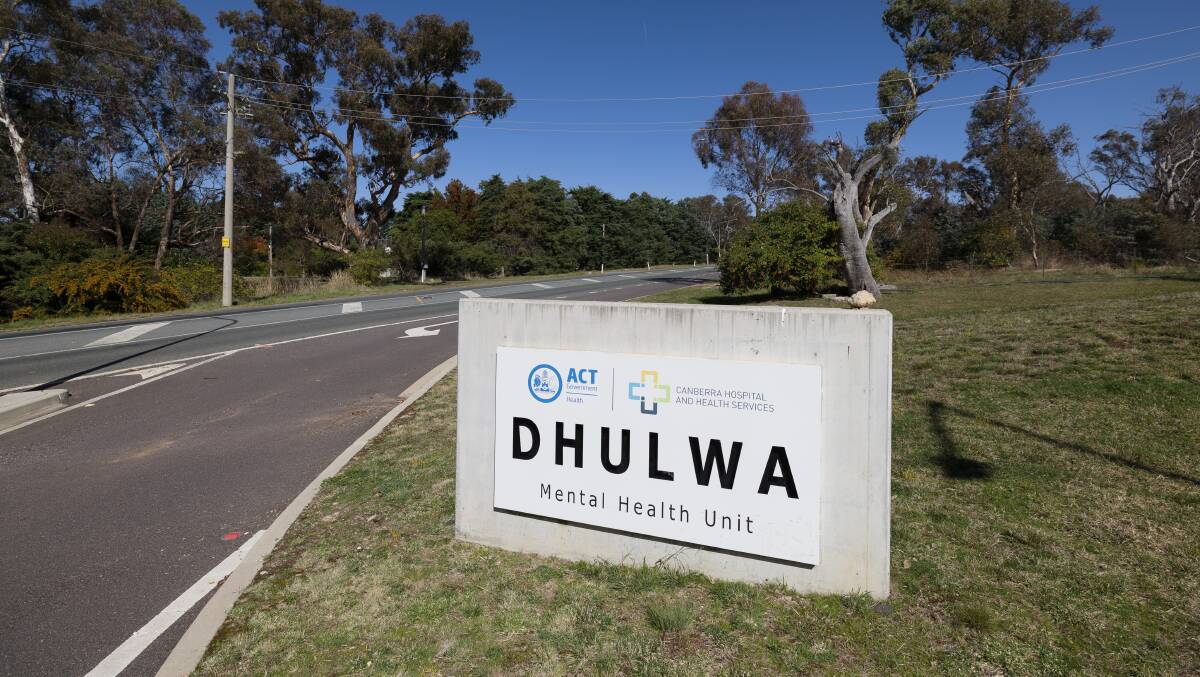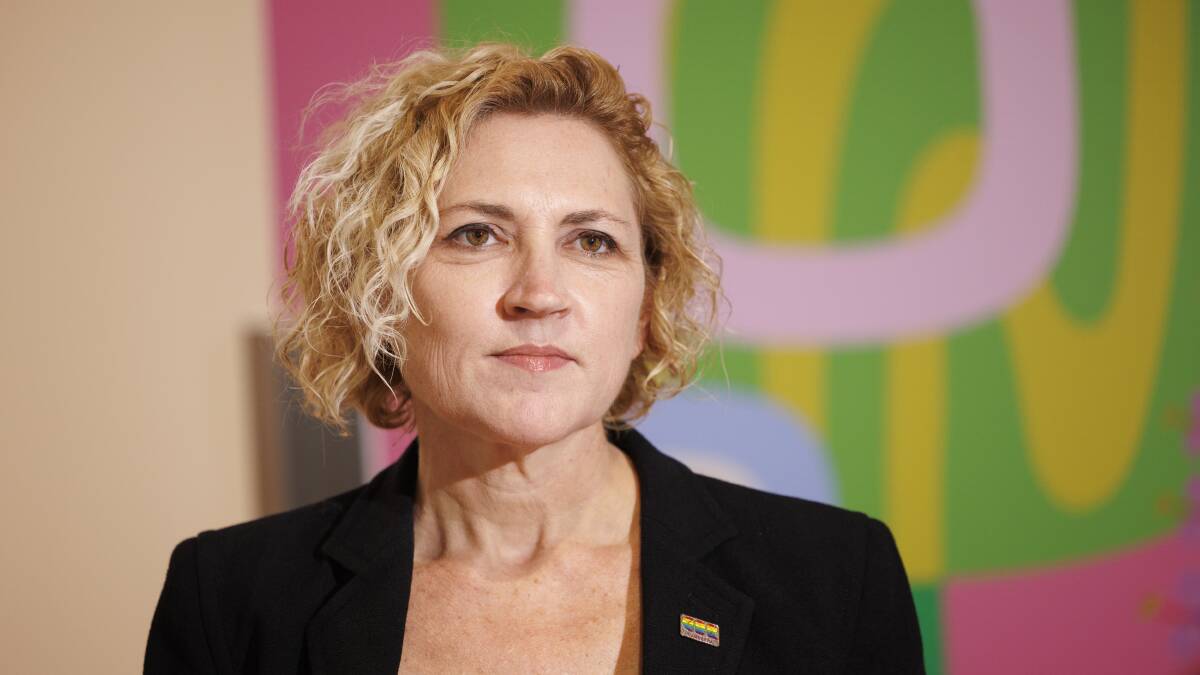Security guards cannot intervene if there is violence between a patient and staff member at a mental health facility, an ACT government executive told a hearing on Tuesday.
Subscribe now for unlimited access.
$0/
(min cost $0)
or signup to continue reading
The Dhulwa secure mental health unit, based in Symonston, aims to rehabilitate adults with complex mental health needs, some of whom have interacted with the criminal justice system.
Security not allowed to interfere
During an ACT Assembly hearing on Tuesday, Liberal MLA Elizabeth Kikkert asked: "Are security guards allowed now to interfere between a staff [member] and a patient during physical violence before the buzzer is pressed for the manager?
"If a security guard or any guard witnesses physical violence between a patient and a nurse, they're not allowed to interfere unless they actually press the button first, before a manager comes on board?"
Staff are responsible for managing patients, Canberra Health Services executive director of mental health Kate McKenzie said.

"No. There's no need for them. The role of security is perimeter, the role of the clinical team is managing those interpersonal dynamics that happen on the ward. And that will show that the team [are] actually managing them very well," she said.
A situation of violence would require a clinical response, Ms McKenzie replied.
"That has not changed, and there has been no incidence of violence," she said.
There has not been an incident of occupational violence at Dhulwa since October 2022, Ms McKenzie told the hearing.
Nurses trained to manage patients

Nurses want to practise "the top of their training skills", such as managing patients, Mental Health Minister Emma Davidson said.
"Nurses are feeling that they're able to go to work in practice to the top of their training skills, and that includes all the training that they do in relational security and providing therapeutic care to people," she said.
Dhulwa staff have been intervening before patients become aggressive, Ms McKenzie said.
"We had an action plan that outlined a range of interventions that were already taking place, and that was about intervening before flashpoints of aggression," she said.
"[This includes] one-to-one engagement when we recognise that people were escalating."
Ms McKenzie said this action plan was put into place before an inquiry was released in November 2022.
That report, by Fair Work Commissioner Barbara Deegan, said the role of security guards should be "limited to the provision of perimeter security".
It recommended Dhulwa staff improve safety by building relationships with patients, as opposed to using physical security measures like guards, locked doors and alarms.
"Although the need for safety and security is necessary in all health settings, in secure forensic mental health inpatient units like Dhulwa, the need is heightened," the review said.
"Consumers [people] who are admitted to these types of facilities have a mental illness, a history of offending and may also have certain attributes that may increase their risk potential."
Ms McKenzie said of the 25 recommendations made by that review, seven had been implemented in full, and of the 53 total actions, 29 had been "closed".
READ MORE:
Workplace culture
The Dhulwa inquiry reported a dysfunctional workplace culture.
Ms Davidson said Dhulwa mental health nurses were "feeling a lot better about going to work a year-and-a-half ago based on the feedback that I'm hearing."
"[The culture is] actually substantially different from when the internal review process was started on Dhulwa," she said.
The formal results measuring culture were yet to be released, Ms McKenzie said
"We are eagerly awaiting the culture results. Last year, the culture results came through that were not good for Dhulwa. This year there's been a really strong response rate from the Dhulwa team," she said.
"We have done some informal measures throughout the year to make sure that our reform program is effective, but they are not something that will directly translate to a culture measure."
Patients uncontactable while on leave
There were 28 mental health patients who were uncontactable while on leave in the 2022-23 financial year, the Mental Health minister told the hearing.
Two of those patients were under section 309 of the Crimes Act 1900, meaning they were accused of a crime and had been sent to a facility to decide if they need immediate treatment.
Ms Davidson said there are "a range of reasons why someone might not return from leave, and some of those might be as simple as missing their bus.
"And then there will be other times where someone decides not to return from leave and it's because they've decided they want to go do something completely different and not come back to the health facility."
Canberra Health Services has been questioned about the leave practices of mental health units following an alleged stabbing by a Gawanggal patient in September.
Our journalists work hard to provide local, up-to-date news to the community. This is how you can continue to access our trusted content:
- Bookmark canberratimes.com.au
- Download our app
- Make sure you are signed up for our breaking and regular headlines newsletters
- Follow us on Twitter
- Follow us on Instagram


